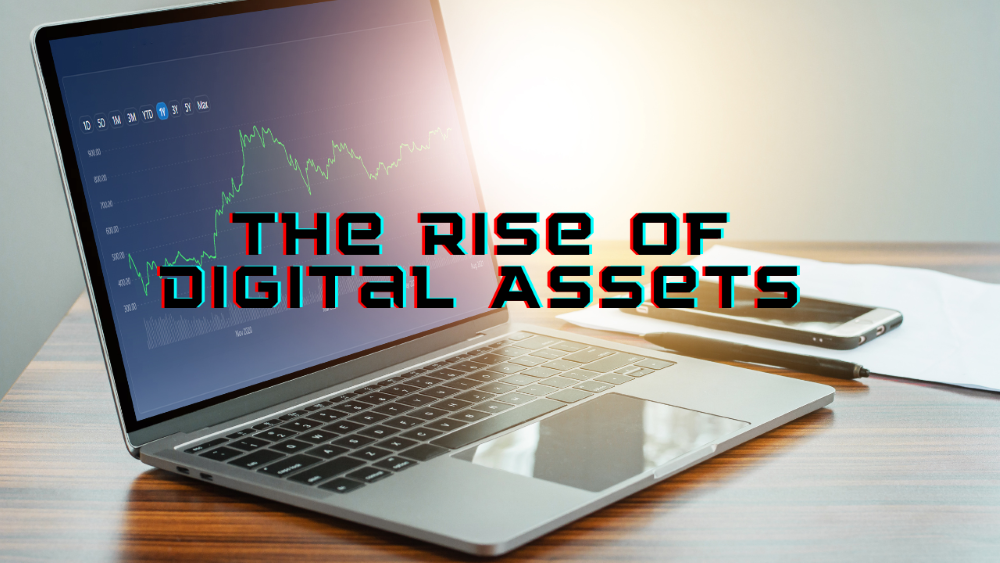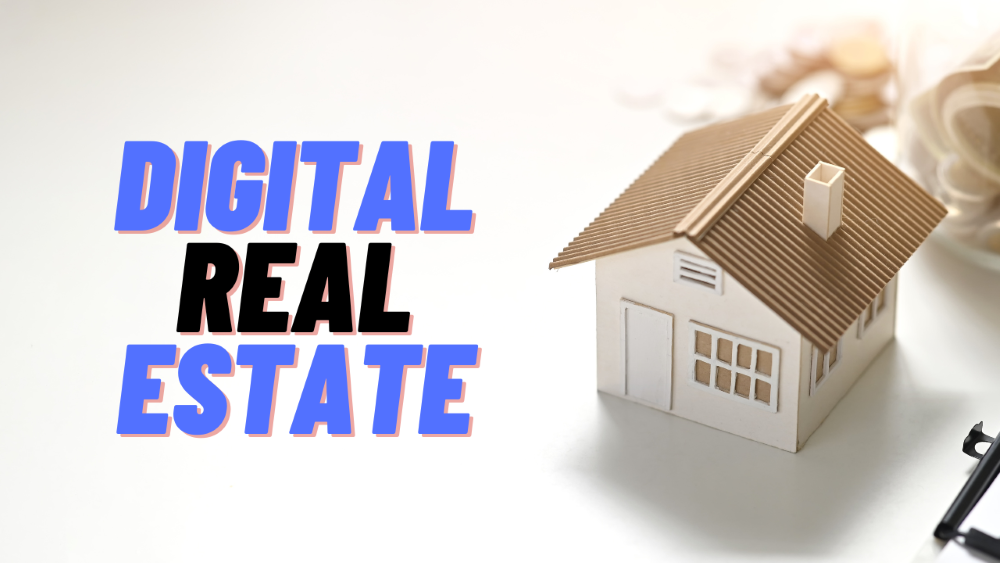Unlock the future of investment with Digital Real Estate. Explore unique opportunities in the virtual world, navigate the digital landscape, and maximize your ROI. Discover the potential of this revolutionary market today.
In a world where everything is shifting online, it should come as no surprise that real estate has also found a new home in the digital realm. Welcome to the era of digital real estate, a thriving market where savvy investors are staking their claims in the virtual landscape. In this comprehensive guide, we will delve deep into the concept of digital real estate, explore its different facets, and provide you with valuable insights on how to navigate this exciting and ever-evolving market.
What is Digital Real Estate?
Traditional real estate involves buying, owning, and profiting from physical properties such as houses, apartments, and commercial buildings. Digital real estate, on the other hand, encompasses the ownership of online assets, such as domain names, websites, and social media profiles. These digital properties can be just as valuable, if not more so, than their physical counterparts.
The Rise of Digital Assets

The digital landscape has witnessed explosive growth in recent years, and with it, the value of digital assets has soared. As businesses increasingly rely on their online presence to reach customers, the demand for digital real estate has surged.
E-commerce Boom: The rise of online shopping has made domain names and websites critical for businesses, boosting the value of digital properties associated with e-commerce.
Content Monetization: Content creators, bloggers, and influencers rely on websites and social media profiles to monetize their content, creating a competitive market for these digital assets.
Online Advertising: With the majority of advertising budgets shifting to digital platforms, websites with substantial traffic have become valuable advertising spaces.
Search Engine Optimization (SEO): High-ranking websites and domains are sought after for their SEO potential, as they can drive organic traffic and generate revenue.
Types of Digital Real Estate
Digital real estate comes in various forms, each with its unique characteristics and investment opportunities:
Domain Names: Consider domain names to be similar to website digital addresses. Domain names are unique to websites, much like physical addresses are to homes. Investing in premium domain names can yield substantial returns, especially if they are short, memorable, or contain popular keywords.
Websites: Websites are perhaps the most versatile form of digital real estate. They can generate income through e-commerce, affiliate marketing, advertising, or selling digital products and services.
Social Media Profiles: High-quality and engaged social media profiles can attract sponsors and advertisers, providing a steady stream of income.
Apps: Mobile applications have become a significant part of the digital real estate market, with potential revenue streams from app purchases, in-app ads, and subscription models.
Why Invest in Digital Real Estate?

Investing in digital real estate offers several compelling advantages:
Lower Entry Costs
Compared to physical real estate, the barriers to entry in the digital real estate market are significantly lower. You can start with a modest budget and gradually scale your investments as you gain experience and confidence.
Diversification
You can easily invest in various portfolios only because of its diversification. By owning a mix of domain names, websites, and social media profiles, you spread your risk across different asset classes within the digital space.
Passive Income
Many digital assets generate passive income. For instance, a well-maintained website can continue to generate revenue through advertising and affiliate marketing, even when you’re not actively working on it.
Growth Potential
The digital landscape is constantly evolving. If you identify emerging trends and invest in the right digital properties, your assets can appreciate significantly in value over time.
Accessibility
Digital real estate is accessible from anywhere in the world. You can manage your investments remotely, giving you the flexibility to work from anywhere.
How to Get Started in Digital Real Estate?
Research and Education
Before diving into digital real estate, invest time in understanding the market. Read books, take online courses, and follow industry experts to gain insights into trends, strategies, and best practices.
Identify Your Niche
Consider your interests, skills, and market trends when choosing your niche. Whether it’s buying and selling domain names or building and flipping websites, finding your niche will help you focus your efforts.
Set a Budget
In this step, you have to decide the minimum amount you want to invest. Start small and gradually increase your budget as you gain experience and confidence.
Purchase Valuable Assets
When acquiring digital properties, look for assets with a proven track record or significant growth potential. Due diligence is crucial to avoid scams or buying underperforming assets.
Monetize Your Assets
Once you own digital real estate, explore various monetization strategies. For websites, this might include affiliate marketing, advertising, or selling products/services. Domain names can be leased or sold to businesses looking for a memorable online presence.
Stay Informed
The digital real estate market is dynamic. Stay updated on industry news, trends, and algorithm changes to make informed decisions and adapt your strategies.
Risks and Challenges
While digital real estate offers exciting opportunities, it’s not without risks:
Market Volatility: The value of digital assets can fluctuate significantly, depending on market trends and demand.
Competition: As more investors enter this market, competition for valuable assets can be fierce.
Technical Skills: Managing and maintaining digital properties may require technical skills or hiring professionals.
Scams: Beware of scams and fraudulent listings. Kindly go through a proper check and verification before investing or purchase of any asset.
Conclusion
Digital real estate is a promising frontier for investors seeking opportunities in the online world. Whether you’re looking for passive income streams, diversification, or the potential for substantial growth, digital assets offer a range of benefits. However, success in this market requires careful research, strategic investments, and ongoing education. With the right approach, you can navigate this market and stake your claim in the virtual property market of the future. So, are you ready to become a digital real estate mogul?
FAQs for digital real estate:
Q. Is digital real estate a good idea?
- Yes, digital real estate can be a wonderful investment option. It offers lower entry costs, diversification, and passive income potential. The digital landscape continues to grow, providing ample opportunities for those who understand the market and are willing to invest time and resources. However, it also comes with risks and requires ongoing education to stay competitive. Careful research and a well-thought-out strategy are crucial for success in this emerging field.
Q. Is digital real estate passive income?
- It can indeed provide passive income, but it depends on how you manage your assets and the strategies you employ. For example, owning a well-established website with consistent traffic can generate passive income through advertising, affiliate marketing, or selling digital products, requiring minimal ongoing effort.

